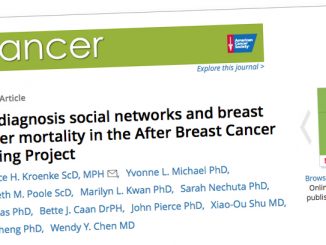
Cancer patients who use complementary medicine tend to refuse effective treatments more often than non users, and this reflects on increased mortality: this is the conclusion of an observational study just published on Jama Oncology, that involved patients with four common cancers (breast, prostate, lung or colorectal).
Skyler Johnson and colleagues from the Yale School of Medicine in New Haven, Connecticut (Usa) selected – from among 1.9 million patients in the National Cancer Database – a group of 258 patients who used complementary medicine and were diagnosed between 2004 and 2013 with non‐metastatic breast, prostate, lung or colorectal cancer , and compared them with a group of 1 032 similar patients who did not use alternative remedies. They monitored the use of “unproven cancer treatments administered by nonmedical personnel” in addition to at least one conventional cancer therapy such as surgery, radiotherapy, chemotherapy or hormone therapy and measured overall survival, adherence to treatment and how they relate to patient characteristics.
“We found that, among patients who were receiving at least one conventional cancer treatment (CCT) modality, patients who chose complementary medicine (CM) were more likely to refuse at least one component of CCT and had a higher risk of death than patients who did not use complementary medicine. After adjusting for delays and refusal of conventional cancer treatment, complementary medicine was not associated with an increased risk of death” the researchers conclude. “We believe our work to be critically important to patients considering complementary medicine — a group that likely includes most patients with cancer. Given the hesitance on behalf of patients to disclose nonmedical therapy to their clinicians, health care professionals need to be proactive in discussing complementary medicine and adherence to conventional medicine treatment with their patients. For patients with curable cancers who are inclined to pursue complementary treatment methods, timely adherence to all recommended conventional therapies should be strongly advised”.





